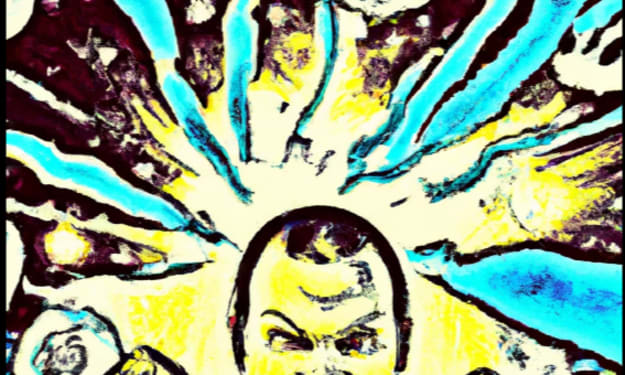Unraveling the Link Between Weed Addiction and OCD: Understanding the Risks, Symptoms, and Prevention
Exploring the Relationship Between Cannabis Use and Obsessive-Compulsive Disorder, and How to Mitigate the Potential Impact.

Obsessive-Compulsive Disorder (OCD) is a mental health disorder characterized by persistent, intrusive thoughts (obsessions) and repetitive behaviors (compulsions) that are aimed at reducing anxiety or distress caused by these thoughts. OCD affects millions of people worldwide and can significantly impair their daily functioning and quality of life. While the exact cause of OCD is not fully understood, research has shown that various factors, including genetics, brain chemistry, and environmental factors, may contribute to its development. In recent years, there has been growing interest in the relationship between OCD and weed addiction, as some studies suggest that weed use may play a role in triggering or exacerbating OCD symptoms.
Weed, also known as marijuana or cannabis, is a psychoactive substance derived from the Cannabis plant. It is commonly used for recreational and medicinal purposes due to its mind-altering effects. However, prolonged and excessive use of weed can lead to addiction, which is characterized by a loss of control over its use, tolerance, withdrawal symptoms, and negative consequences on various aspects of life, including mental health.
The relationship between weed addiction and OCD is complex and multifactorial. While research in this area is limited, some studies have shown that weed use may be associated with an increased risk of developing or worsening OCD symptoms. Here are some reasons why weed addiction may play a role in OCD:
1. Dopamine imbalance: Weed use affects the levels of neurotransmitters, such as dopamine, in the brain. Dopamine is a chemical messenger that plays a role in regulating mood, motivation, and reward processing. Imbalances in dopamine levels have been implicated in the development of OCD, as well as addiction. Some research suggests that weed use may disrupt the delicate balance of dopamine in the brain, which could potentially trigger or exacerbate OCD symptoms in susceptible individuals.
2. Impaired cognitive function: Weed use can impair cognitive function, including memory, attention, and decision-making. This may result in difficulties in resisting compulsive behaviors and engaging in repetitive thought patterns, which are hallmark features of OCD. Impaired cognitive function may also hinder the individual's ability to engage in effective coping strategies and problem-solving skills, which are important in managing OCD symptoms.
3. Increased anxiety and paranoia: While some people may use weed to cope with anxiety, prolonged and excessive use of weed can actually increase anxiety and paranoia in some individuals. Anxiety is a common symptom of OCD, and increased anxiety levels may exacerbate OCD symptoms, including obsessions and compulsions. Moreover, weed-induced paranoia may further intensify the individual's obsessive thoughts and compulsive behaviors, leading to a vicious cycle of increased weed use and worsening OCD symptoms.
4. Withdrawal effects: Weed addiction can lead to withdrawal effects when the individual attempts to quit or reduce their use. Withdrawal effects, such as irritability, mood swings, and sleep disturbances, may trigger or exacerbate OCD symptoms, as individuals may turn to compulsive behaviors as a way to cope with the discomfort of withdrawal. This may further reinforce the cycle of weed addiction and OCD symptoms.
5. Co-occurring mental health conditions: It is not uncommon for individuals with OCD to have co-occurring mental health conditions, such as depression or anxiety. Weed addiction can also lead to the development of other mental health conditions, including depression, anxiety, and psychosis. The presence of co-occurring mental health conditions may complicate the management of OCD symptoms and increase the risk of weed addiction playing a role in OCD.
Preventing weed addiction and its impact on OCD:
Prevention is always better than cure. Here are some strategies that can help prevent weed addiction and its impact on OCD:
1. Education and awareness: Educate yourself about the risks and potential consequences of weed use, including its potential impact on mental health conditions like OCD. Stay informed about the latest research and information regarding weed addiction and its relationship with OCD.
2. Mindful use: If you choose to use weed, do so mindfully and responsibly. Set limits for yourself and avoid excessive or prolonged use. Be aware of any changes in your thoughts, emotions, and behaviors after using weed, and seek help if you notice any negative effects on your mental health.
3. Seek professional help: If you have a history of OCD or are experiencing symptoms of OCD, seek professional help from a qualified mental health professional. Early intervention and appropriate treatment can help manage OCD symptoms and reduce the risk of weed addiction playing a role in OCD.
4. Develop healthy coping strategies: Instead of turning to weed as a coping mechanism, develop healthy coping strategies to manage stress, anxiety, and other emotions. This can include engaging in relaxation techniques, exercise, mindfulness, and seeking support from loved ones or a therapist.
5. Address co-occurring mental health conditions: If you have co-occurring mental health conditions, such as depression or anxiety, seek appropriate treatment for those conditions. Treating and managing co-occurring mental health conditions can help reduce the risk of weed addiction playing a role in OCD.
6. Create a supportive environment: Surround yourself with supportive people who understand your struggles with OCD and weed addiction, and who can provide encouragement and accountability. Avoid environments or situations that may trigger weed use or worsen OCD symptoms.
Symptoms of OCD:
OCD is characterized by the presence of obsessions, which are intrusive and unwanted thoughts, and compulsions, which are repetitive behaviors or mental acts aimed at reducing the distress caused by the obsessions. Some common symptoms of OCD may include:
1. Obsessions:
• Fear of contamination or germs
• Unwanted aggressive or violent thoughts
• Unacceptable sexual or religious thoughts
• Need for symmetry or orderliness
• Excessive concern about health or illness
2. Compulsions:
• Excessive hand washing or cleaning
• Repeated checking of doors, locks, or appliances
• Counting or repeating certain words or phrases
• Arranging objects in a specific way
• Mental rituals, such as repeating prayers or counting in the head
These obsessions and compulsions can significantly interfere with daily activities, relationships, and overall quality of life. It's important to note that everyone may experience occasional intrusive thoughts or engage in repetitive behaviors, but in OCD, these symptoms are persistent, time-consuming, and cause significant distress or impairment.
Conclusion:
While research on the relationship between weed addiction and OCD is still limited, there is evidence to suggest that prolonged and excessive weed use may play a role in triggering or exacerbating OCD symptoms. Factors such as dopamine imbalance, impaired cognitive function, increased anxiety and paranoia, withdrawal effects, and co-occurring mental health conditions may contribute to the relationship between weed addiction and OCD. It's important to be aware of the potential risks and take preventive measures, such as education, mindful use, seeking professional help, developing healthy coping strategies, addressing co-occurring mental health conditions, and creating a supportive environment. If you suspect that you or someone you know may be struggling with OCD or weed addiction, seek professional help for proper evaluation and treatment. With proper support and management, individuals can effectively manage OCD symptoms and reduce the impact of weed addiction on their mental health and overall well-being.
About the Creator
Shams Ul Qammar
I'm a psyche student who loves raising awareness about mental health. Together we can delve into the world of mental health issues. My responses will be based on my studies. Let's embark on this journey of exploration together!






Comments
There are no comments for this story
Be the first to respond and start the conversation.